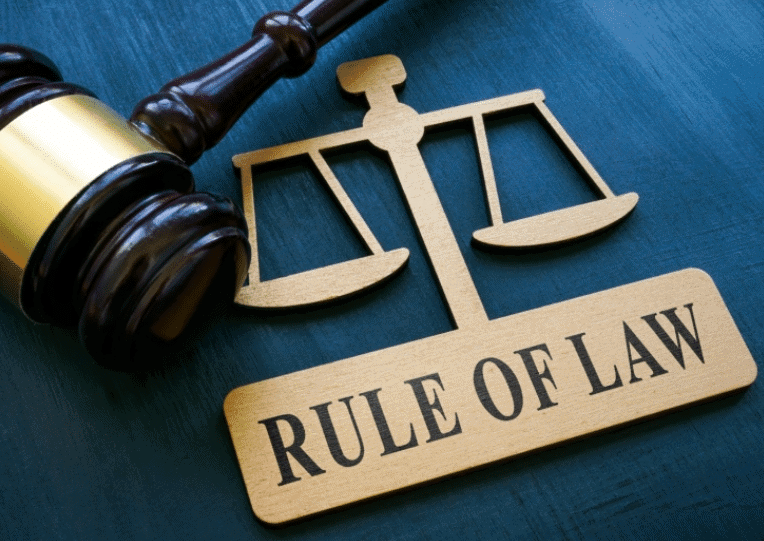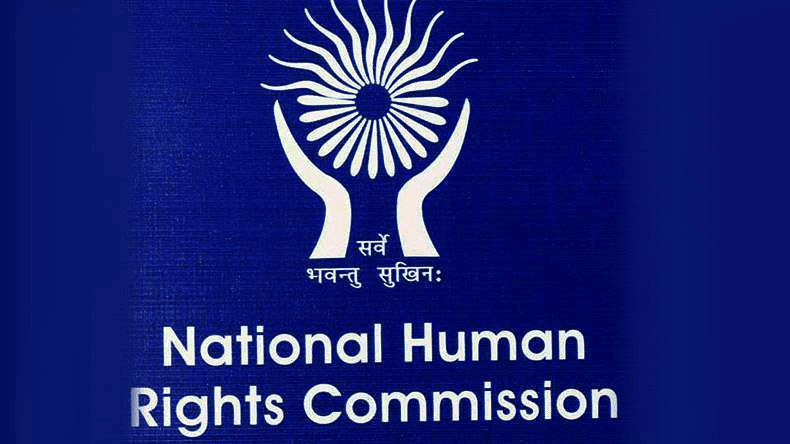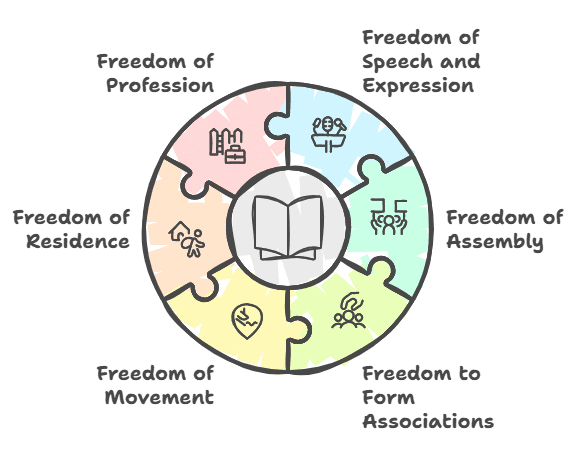Class 9 Civics Chapter 1 Question Answers - Democratic Politics - I
Q.1. What was the background in which ethnic massacre took place in Kosovo?
Ans. Kosovo was a province of Yugosalvia before it split away. In this province the population was overwhelmingly ethnic Albanian. But in the entire country, Serbs were in majority. A narrowminded Serb nationalist, Milosevic, had won the election and became the President of Yugoslavia. His government was very hostile to the Kosovo Albanians. He wanted that ethnic minorities like Albanians should either leave the country or accept the dominance of the Serbs. The massacre was carried out by the army under the direction of the government.
Q.2. Explain what is meant by ‘Rule of Law’. [Important]
Ans. Rule of law means equality before the law or equal protection of the laws. It means that the laws apply in the same manner to all, regardless of a person’s status. Rule of law is the foundation of any democracy. It implies that no person is above the law. There cannot be any distinction between a political leader, government official and ordinary citizen.
Q.3. Are the reservations provided to the Scheduled Castes, Scheduled Tribes and OBCs against the Right to Equality? Give reasons.
Ans. These reservations are not against the Right to Equality. In a broader sense, equality does mean giving everyone the same treatments, no matter what they need. Equality means giving everyone an equal opportunity to achieve whatever one is capable of. Sometimes, it is necessary to give job reservations to socially and economically backward sections of the society to ensure equal opportunity. The constitution says that reservations of this kind are not a violation of the Right to Equality.
Q.4. Mention the freedoms provided under the ‘Right to Freedom’. Why are reasonable restrictions imposed on them? [Important]
Ans. Under the Right to Freedom, the Indian constitution guarantees six freedoms. These are :
(i) Freedom of speech and expression
(ii) Freedom to assemble peacefully without arms
(iii) Freedom to form associations and unions
(iv) Freedom to move freely throughout the country
(v) Freedom to reside in any part of the country and,
(vi) Freedom to practise any profession, or to carry on any occupation, trade or business.
Reasonable restrictions are imposed on our freedoms in the larger interest of the society. Freedom should be exercised in such a manner that it does not violate others’ right to freedom.
Q.5. What does the term ‘minority’ refer to under the Cultural and Educational Rights?
Ans. Here minority does not mean only religious minority at the national level. In some places, people speaking a particular language are in majority; people speaking a different language are in a minority. For example, Telugu-speaking people form a majority in Andhra Pradesh but they are a minority in Karnataka. Sikhs constitute a majority in Punjab, but they are a minority in Rajasthan, Haryana and Delhi.
Q.6. What is the role of National Human Rights Commission in securing the human rights? How does it work?
Ans. The National Human Rights Commission (NHRC) focuses on helping the victims secure their human rights. These include all the rights granted to the citizens by the constitution. For NHRC human rights also include the rights mentioned in the UN-sponsored international treaties that India has signed. The NHRC cannot by itself punish the guilty – that is the responsibility of the courts. The NHRC makes an independent and credible inquiry into any case of violation of human rights. The commission presents its findings and recommendations to the government or intervenes in the court on behalf of the victims. Like any court, it can summon witnesses, question any government official, demand any official paper, visit any prison for inspection or send its own team for on-the-spot inquiry.
Q.7. Give some examples with regard to the expansion of the scope of rights for the citizens.
Ans. Certain rights like right to freedom of press, right to information, and right to education are derived from the Fundamental Rights. Recently school education has become a right for Indian citizens.
Parliament has passed a law giving the right to information to the citizens. Under the directionof the Supreme Court, right to life now includes the right to food. Right to property is not a Fundamental Right but it is a legal right. Right to vote in elections is an important constitutional right.
Q.8. Explain the 'Right to Equality' enjoyed by the citizens of India. What is its importance?
[CBSE 2010]
Ans. All citizens irrespective of caste, colour, region, religion ethnicity, sex or place of birth are equal before the law. There shall be no discrimination against any citizen. All citizens shall have equal opportunity in matters of employment. This is what the 'Right to Equality' means.
Q.9. Describe in detail the cultural and educational rights of the minorities as provided in the Indian constitution. [CBSE 2010]
Ans. The language, culture and religion of minorities need protection otherwise they may get neglected or undermined under the impact of the language, culture and religion of the majority. All minorities have the right to establish and administer educational institutions of their choice.
Q.10. The 'Right to Constitutional Remedies' is called the heart of the constitution. Explain.
[CBSE 2010]
Ans. This 'Right' makes other 'Rights' effective. If sometimes our rights are violated by fellow citizens, private bodies or by the government, we can seek remedy through courts. If it is a Fundamental Right we can directly approach the Supreme Court or the high court of a state. That is why Dr. Ambedkar called it "the heart and soul" of our constitution.
Q.11. “The right to freedom is a cluster of six rights”. Explain. [2011 (T-2)]
Ans. The right to freedom is a cluster of six rights. Therefore :
(i) Freedom of speech and expression
(ii) Freedom of assembly in peaceful manner
(iii) To form association and unions
(iv) Move freely through out the country
(v) Reside in any part of the country
(vi) Practice any profession or occupation.
Q.12. Why are the rights guaranteed by the Indian constitution called Fundamental Rights? [2011 (T-2)]
Ans.
(i) They are fundamental to our life.
(ii) Fundamental Rights put into effect the securing for all citizens equality, liberty and justice as given in the Preamble to our constitution.
Q.13. State any three provisions of the Fundamental Right Against Exploitation. [2011 (T-2)]
Ans.
(i) The constitution prohibits ‘traffic in human beings’ i.e. selling and buying of human beings.
(ii) It also prohibits forced labour or begar in any form.
(iii) The constitution also prohibits child labour. No one can employ a child below the age of fourteen to work in a factory, mine or any hazardous work.
Q.14. Why do we need rights in a democracy? [2011 (T-2)]
Ans. Rights are claims of a person over other fellow beings; over the society, and over the government. Rights are necessary for the very sustenance of democracy. Rights protect minorities. Rights are guarantees which can be used when things growing.
Q.15. Write three constitutional provisions for the protection of women and children in India. [2011 (T-2)]
Ans. These are : The constitution prohibits
(i) traffic in human beings i.e. selling & buying of human beings specially women for
immoral purposes.
(ii) It prohibits forced labour
(iii) It protects children under years of age by prohibiting their employment in any factory, mine or hazardous work.
Q.16. Right to freedom comes with some limitations. Justify with three suitable examples. [2011 (T-2)]
Ans. (i) You cannot use your Right to Freedom to incite people to rebel against government or to defame others.
(ii) We can hold meetings but peacefully.
(iii) We cannot carry weapons while participating in a procession or a meeting.
Q.17. Mention any three features of Right to Equality. [2011 (T-2)]
Ans.
(i) The law apples to all citizens irrespective of his status (The Rule of Law).
(ii) The government shall not discriminate against any citizen on grounds of religion, caste ethnicity, sex or place of birth.
(iii) All citizens have equality of opportunity in matters of employment
Q.18 State the three features of cultural and educational rights. [2011 (T-2)]
Ans.
(i) Any sections of citizens with a distinct language or culture have a right to conserve it.
(ii) Admission to any educational institution maintained by government or with its aid cannot be denied to any citizen on the ground of religion or language.
(iii) All minorities have the right to establish and administer educational institutions of their choice.
Q.19. Mention any three rights of a detained person. [2011 (T-2)]
Ans.
(i) A person who is arrested and detained in custody will have to be informed of the reasons for such arrest.
(ii) Such a person shall be produced before the nearest magistrate within a period of 24 hours of arrest.
(iii) Such a person has the right to consult a lawyer or engage a lawyer for his defence.
Q.20. “Right to constitutional remedies is the heart and soul of the constitution.” Justify. [2011 (T-2)]
Ans. This right makes other rights effective when any of our rights are violated we can seek remedy through courts. If it is a Fundamental Right we can directly approach the Supreme Court. That is why Dr Ambedkar called it ‘‘the heart and soul of our constitutionoe’’.
|
55 videos|635 docs|79 tests
|
FAQs on Class 9 Civics Chapter 1 Question Answers - Democratic Politics - I
| 1. What are democratic rights? |  |
| 2. How are democratic rights protected in India? |  |
| 3. What is the role of the Election Commission? |  |
| 4. What is the significance of the Right to Information Act? |  |
| 5. What is the importance of the Right to Freedom of Speech and Expression? |  |

















